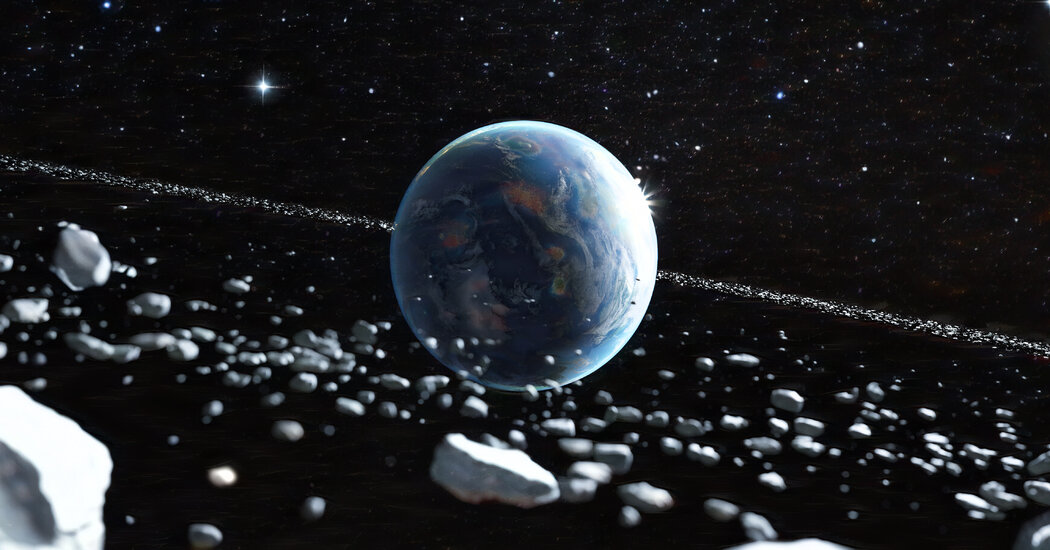Impact craters found around the Earth that were made around the same time could be linked to debris falling from a ring, a new study suggests.
If you were to look up from Earth some 466 million years ago, you might have seen a gleaming ring stretching across the sky, some scientists say.
A study published this month links an uptick in impact craters during the Ordovician Period, an era before animals lived on land, to a ring made of asteroid debris that encircled our planet for millions of years.
Scientists have long speculated about the origin of the Ordovician meteor event, when Earth was bombarded by space rocks at an unusually high rate, producing dozens of craters and sediments packed with meteorites. Previous research implicated a large asteroid that broke apart in the main belt between Mars and Jupiter and sent rocky shrapnel into the inner solar system, where it pelted our planet.
But what if this ancient object burst into pieces at our doorstep? Researchers led by Andy Tomkins, professor of Earth and planetary sciences at Monash University in Australia, envision an asteroid that passed within thousands of miles of Earth, close enough to be ripped apart by the planet’s gravity. The debris from the breakup then coalesced in a ring around the Equator, a scenario that may be linked to dramatic changes in climate and biodiversity at the time.
“I got the idea when I read a popular science article about Phobos and Deimos, the moons around Mars, having formed from leftover bits of a ring around Mars,” said Dr. Tomkins, whose study was published in Earth and Planetary Science Letters. “That made me think how would I see, in the geological record, if Earth had had a ring in the past as well.”
Dr. Tomkins and his team mapped out where on Earth 21 craters from the Ordovician would have been located at that time. If the debris had come from the asteroid belt, the craters should have been distributed all over the planet. But the craters were clustered around the Equator, hinting that they were made by meteorites falling from an equatorial ring.
